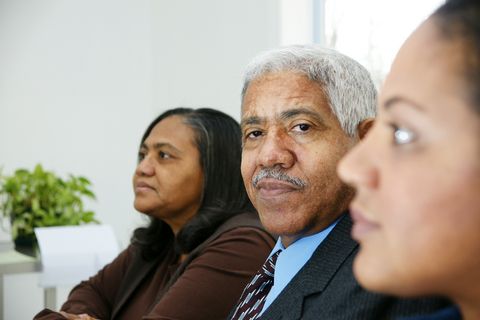Critical Care: Geriatric Physician Shortage Grows

Physicians and psychiatrists who specialize in geriatric medicine are already in short supply, and despite an aging population in America, that's unlikely to change in the future, new research warns.
Today's medical students aren't going into geriatric specialties, according to a study presented March 19 at the American Association for Geriatric Psychiatry's annual meeting in San Antonio, Texas. The shortage mirrors similar gaps in family medicine, and is likely to become more acute as the population ages.
"You would think that geriatric medicine and geriatric psychiatry would be 100 percent filled, because you have these older patients and they have chronic conditions and often have multiple problems," study researcher Elizabeth Bragg, a professor of public health at the University of Cincinnati, told LiveScience. "But that's not what is happening."
Specialist shortage
By 2030, 70 million Americans will be older than 65, according to U.S. Census data. But they'll likely have few doctors specially trained to deal with the needs of older adults. As part of an ongoing study of the geriatric workforce, which started in 2000, Bragg and her colleagues surveyed fellowship and residency programs where doctors learn special skills after medical school. They also pulled data from national censuses of health care providers.
The researchers found that spots in geriatric psychiatry programs are not filling, and the gap between slots available and slots filled has been widening since the late 1990s. In 2010, only 45 percent of geriatric psychiatry openings were filled. Geriatric medicine was similarly lagging, with 56 percent of slots filled. In comparison, fields such as pediatrics and general psychiatry filled 98 percent of their slots.
Many of those who join the geriatric specialty ranks did not graduate from American medical schools, the researchers found. Of medical students who did go into geriatric psychiatry, only 31 percent were U.S. medical school graduates. For geriatric medicine, that number was 29 percent. (Graduates of international medical schools may be American-born, Bragg said, because some students who can't get into U.S. medical schools go overseas for training.)
Sign up for the Live Science daily newsletter now
Get the world’s most fascinating discoveries delivered straight to your inbox.
Next steps
The reasons for the shortage are partly economic and partly due to the stigma of dealing with older patients, particularly those with mental health issues, Bragg said.
Specializing in geriatric psychiatry or geriatric medicine requires training above and beyond regular specialties. To specialize in geriatric psychiatry, doctors must first train as psychiatrists and then spend another year honing geriatric psychiatry skills; to become a qualified geriatric physician, they must first graduate from an internal or family medicine program. And that extra training doesn't pay off in salary — quite the opposite, Bragg said.
For geriatric medicine, she said, "you're going to go to school for another year or so and you're going to earn almost $20,000 [a year] less than if you were going to stay in internal medicine."
The looming shortage is already recognized as a problem. In 2010, Congress mandated a study determining the mental health care needs of Americans over 65. The Institute of Medicine (IOM), part of the National Academy of Sciences, is conducting that study. The report will be made public in April 2012, said study director Jill Eden of the IOM.
You can follow LiveScience senior writer Stephanie Pappas on Twitter @sipappas.

Stephanie Pappas is a contributing writer for Live Science, covering topics ranging from geoscience to archaeology to the human brain and behavior. She was previously a senior writer for Live Science but is now a freelancer based in Denver, Colorado, and regularly contributes to Scientific American and The Monitor, the monthly magazine of the American Psychological Association. Stephanie received a bachelor's degree in psychology from the University of South Carolina and a graduate certificate in science communication from the University of California, Santa Cruz.











